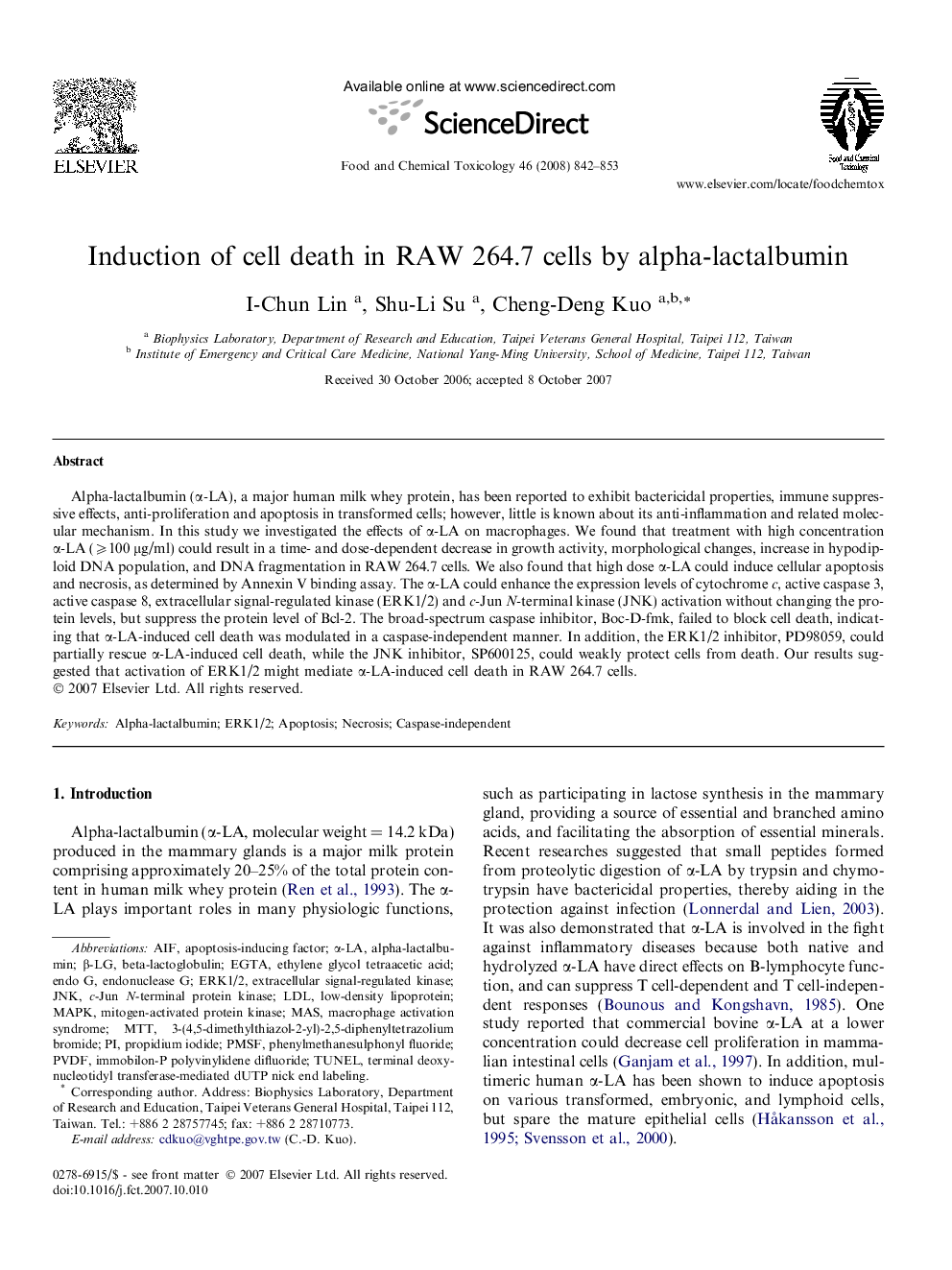| Article ID | Journal | Published Year | Pages | File Type |
|---|---|---|---|---|
| 2587664 | Food and Chemical Toxicology | 2008 | 12 Pages |
Alpha-lactalbumin (α-LA), a major human milk whey protein, has been reported to exhibit bactericidal properties, immune suppressive effects, anti-proliferation and apoptosis in transformed cells; however, little is known about its anti-inflammation and related molecular mechanism. In this study we investigated the effects of α-LA on macrophages. We found that treatment with high concentration α-LA (≥100 μg/ml) could result in a time- and dose-dependent decrease in growth activity, morphological changes, increase in hypodiploid DNA population, and DNA fragmentation in RAW 264.7 cells. We also found that high dose α-LA could induce cellular apoptosis and necrosis, as determined by Annexin V binding assay. The α-LA could enhance the expression levels of cytochrome c, active caspase 3, active caspase 8, extracellular signal-regulated kinase (ERK1/2) and c-Jun N-terminal kinase (JNK) activation without changing the protein levels, but suppress the protein level of Bcl-2. The broad-spectrum caspase inhibitor, Boc-D-fmk, failed to block cell death, indicating that α-LA-induced cell death was modulated in a caspase-independent manner. In addition, the ERK1/2 inhibitor, PD98059, could partially rescue α-LA-induced cell death, while the JNK inhibitor, SP600125, could weakly protect cells from death. Our results suggested that activation of ERK1/2 might mediate α-LA-induced cell death in RAW 264.7 cells.
